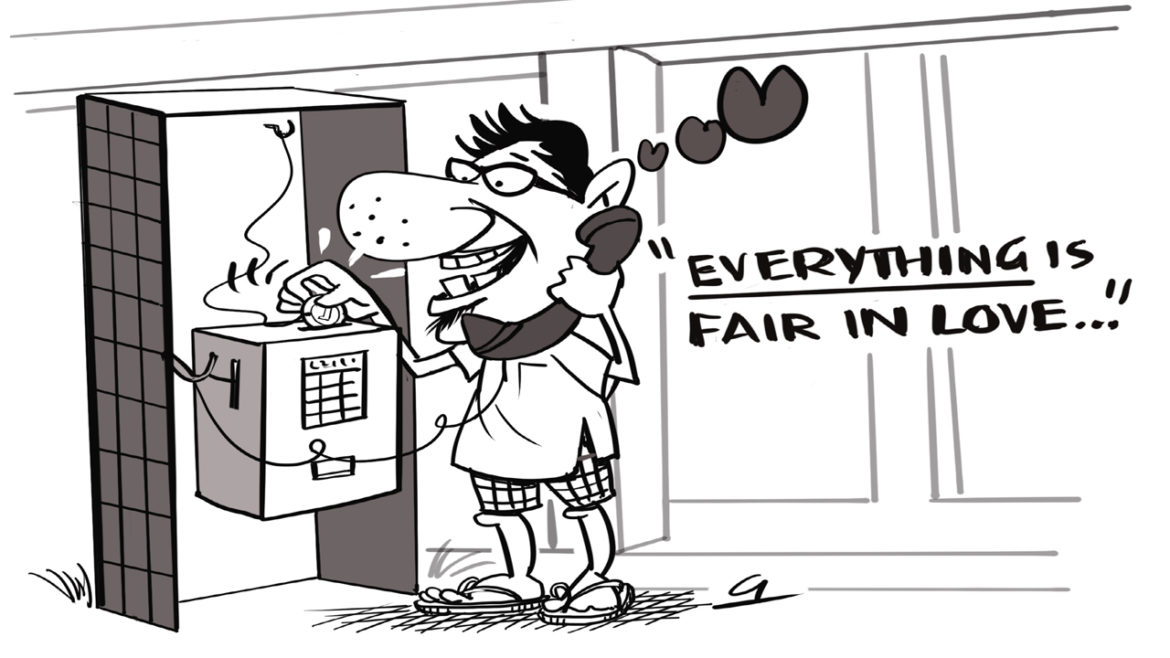Artwork by Prof. Arun Inamdar
Raj Nair
Raj Nair
Raj [B.Tech,’71 MEMS, H6] is an entrepreneur. He serves as Chairman of three companies (Avalon Consulting, Avalon Global Research and Germinait Solutions). There was a fourth one which he sold, a large analytics company that he co-founded. He is the Vice Chairman of the Pan IIT Alumni Association. He is also on the Board of TiE Mumbai, IMC Chamber of Commerce and Industry (and its former President), etc. He is an active investor in start-ups in India and North America and mentors many of them. In his previous roles, Raj has worked as a Merchant Banker with Grindlays Bank and has also worked in the Consumer Electronics industry. Raj graduated from IIT Bombay in 1971 and from IIM Ahmedabad in 1973. He is a recipient of the Distinguished Alumnus and Distinguished Service Awards from IIT Bombay. He loves reading, writing, and painting.
Photo by Murray Campbell on Unsplash
When I wondered what I could predict about the Indian economy in 2021 that IITians don’t know or have not at least, already read about, I thought it might be worthwhile to reconnect with Cyrus the Virus, named after the famous Persian Emperor, who had helped me call out the pandemic, in my last year’s annual note, Tipping Point. He had told me in advance about the dire straits that we would find ourselves in 2020. It is another matter that governments in most countries delayed their response, sometimes, to as late as in end March. We kept in touch regularly ever since. Here is what he told me, even as I was still nursing my first peg, on the new-year’s eve:
Photograph by Steven VanDesande Jr
We live in a world that is expecting widespread economic growth in 2018, the likes of which, it has not seen after the great collapse of 2008 and rightly so. Real estate prices are creeping to record levels, as also commodity prices and stock market indices. Have we forgotten the several casualties in the corporate world, real estate, banking, and a wide swathe of other sectors, shattered dreams and broken lives of ordinary people in the aftermath of crisis of ten years ago? Have we learnt our lessons? No. The pattern of mass memory lapse for which documented history exists is mankind’s curse.
[The article below was originally an Institute lecture given by the author on August 3, 2017. Here’s the link to the video recording.]
Thank you for giving me the opportunity to deliver this prestigious Institute Lecture. I will not indulge in speculative technology forecasting but all the same, transport you into the future, because the kind of research projects or non-academic careers that you could choose may change if you knew some aspects of the future with a degree of certainty. I will demonstrate that you can even today see many of the things that will, probably, happen in a few years. You just need to identify important technological developments that have already happened and then study their impact, when adopted in specific fields, and then, study the impact of those things on things that lie further downstream. My interest in these things started one summer night in Aberdeen in 2007 when I heard on TV that a British Bank, Northern Rock had collapsed suddenly due to investments in CDS (Collateral Default Swaps), an instrument that most people had not heard of till then. I wondered how things could have been different for hapless investors, if this collapse could have been anticipated. Research led me to understand that Banks were speculating in that instrument and that it was being used by Bankers in the US to create multiple layers of pseudo assets built on poor quality loans given to people with doubtful credit history. After understanding the chain of events backwards from Northern Rock’s collapse to the root cause, I found that if one had worked forward from when reckless trading in naked CDSs had started, it would have been possible to predict the Northern Rock collapse. This thought enthused me to use the same process in the forward direction starting with the then situation, and that led me to believe that the entire global economy will collapse in the next year. I gave talks on this at various public forums from November 2007 until March 2008 by which time the fault-lines became self-evident and the collapse happened in July 2008. Then onwards, for the past decade, I have been using this very simple process of deductive logic for predicting the future after identifying things that can trigger change- social trends, politics and technology amongst many others. That is the secret behind predicting that oil price would collapse in 2008 whilst the general opinion, including that of Goldman Sachs, was that it would rise from $140 per barrel to $180.
Six world leaders hold an emergency summit at the Austrian Ski town to tackle an imminent economic meltdown.
Six world leaders hold an emergency summit at the Austrian ski town, Kitzbuhel, to discuss how the ISIS crisis, oil, commodities and China’s slowdown could drown the world in 2016 unless they jointly did something. They ended up merely sharing some data to justify what each one was up to. The Indian PM Modi, on his way back gets his advisor to explain to journalists on board his aircraft, what all that data that he got at the summit, really means for the world and to India in particular. 2016 will be a tough and volatile year, in which oil prices will drop further. At some point however, oil price will creep up. Some parts of the world would be worse off than last year, especially OPEC, Russia, etc. Disturbances would affect Latin America. The ME could be a tinderbox that could send oil prices up again. China will be in transition, not likely to lose its global market share but some domestic market ‘explosions’ will keep China in the news and the global stock markets on tenterhooks. This will affect India’s bourses as well despite the Indian economy pulling upwards because FDI starts finally kicking in, inflation remains under control and fortunately, decent monsoons and low oil prices help Modi to keep the GDP a little above the 2015 rate despite fall in exports. Who will the winners and losers be? Will speculators exploit the vulnerability of the situation to trigger a crisis? Read on for more.




